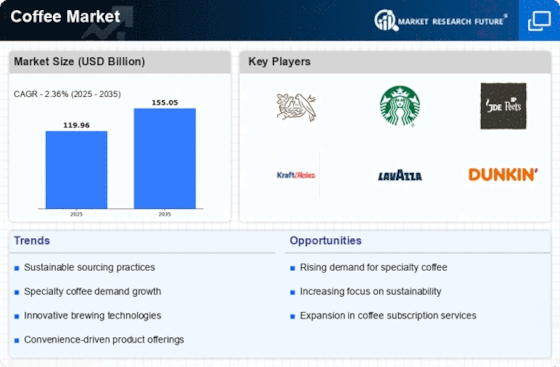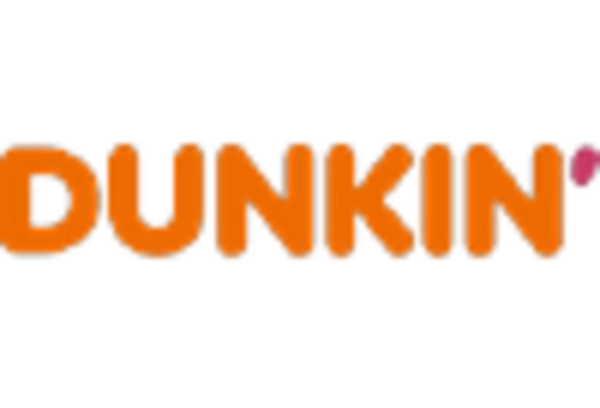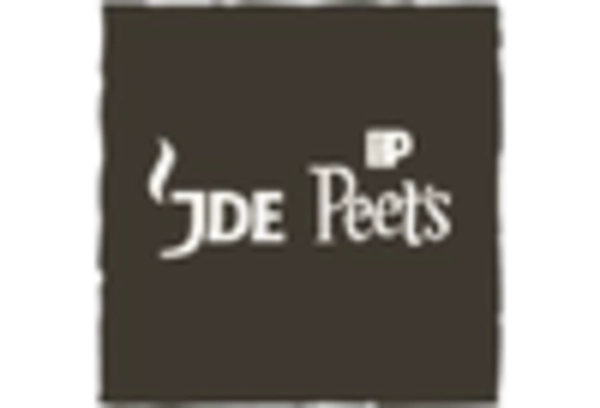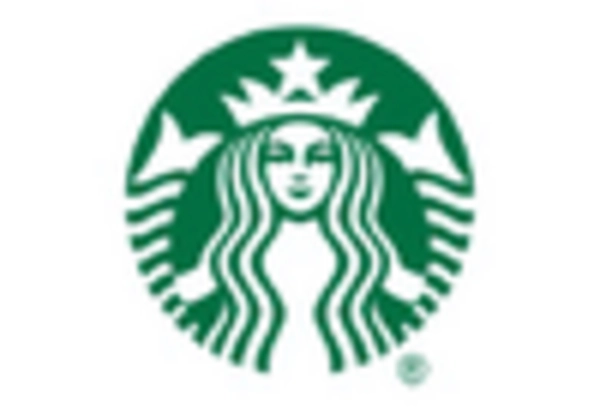Market Analysis
In-depth Analysis of Coffee Market Industry Landscape
The coffee market is experiencing dynamic shifts, reflecting changing consumer behaviors and preferences. One prevailing trend is the rise of specialty coffee. Consumers are increasingly seeking unique and high-quality coffee experiences, leading to a surge in demand for specialty coffee beans sourced from specific regions known for their distinct flavor profiles. This trend is reshaping the landscape of coffee shops and encouraging a more discerning consumer base that appreciates the nuances of different coffee varieties and brewing methods.
The influence of sustainability is becoming increasingly pronounced in the coffee market. Consumers are expressing a growing interest in ethically sourced and environmentally friendly coffee products. As a result, coffee producers and retailers are placing greater emphasis on fair trade practices, eco-friendly packaging, and initiatives that support the well-being of coffee-producing communities. Sustainability is not just a buzzword but a key factor influencing purchasing decisions, as consumers align their choices with their values.
Technology is playing a significant role in shaping the coffee market, particularly through the rise of smart coffee solutions. From connected coffee machines that can be controlled through mobile apps to innovative brewing techniques, technology is enhancing the overall coffee experience. The convenience of app-based ordering, personalized recommendations, and even smart coffee subscriptions is transforming how consumers engage with and enjoy their daily cup of coffee.
The concept of experiential coffee consumption is gaining momentum. Coffee shops are evolving into experiential spaces that offer more than just a caffeine fix. Customers seek unique atmospheres, engaging aesthetics, and interactive elements that enhance their overall coffee-drinking experience. From specialty brew methods like pour-over and cold brew to coffee artistry and themed coffee shops, the market is witnessing a shift toward creating memorable and Instagram-worthy moments for coffee enthusiasts.
Health and wellness considerations are influencing the coffee market as well. With an increasing focus on well-being, consumers are exploring alternative coffee options such as functional coffees, which may include added ingredients like vitamins, antioxidants, or adaptogens. Additionally, there's a growing interest in low-acid and low-caffeine coffee varieties, catering to those who are more health-conscious or sensitive to traditional coffee's effects.
In response to changing lifestyles, the ready-to-drink (RTD) coffee market is expanding rapidly. Busy consumers are seeking convenient and on-the-go coffee solutions, leading to a proliferation of bottled and canned coffee beverages. The RTD coffee market includes a diverse range of options, from cold brews and iced coffees to nitrogen-infused varieties, providing consumers with a wide array of choices that align with their preferences and convenience needs.
Furthermore, personalization is a key driver in the coffee market. From customizable blends to made-to-order beverages, consumers appreciate having the ability to tailor their coffee experience to suit their taste preferences. Coffee retailers are leveraging this trend by offering extensive menu options, allowing customers to choose everything from the type of beans to the brewing method, sweeteners, and milk alternatives.
The global coffee market is also witnessing geographical shifts in consumption patterns. Emerging markets are experiencing a growing demand for coffee, driven by increased urbanization, changing demographics, and a burgeoning middle class. As a result, coffee producers are exploring new markets and adapting their strategies to cater to the evolving preferences of diverse consumer groups.


















Leave a Comment